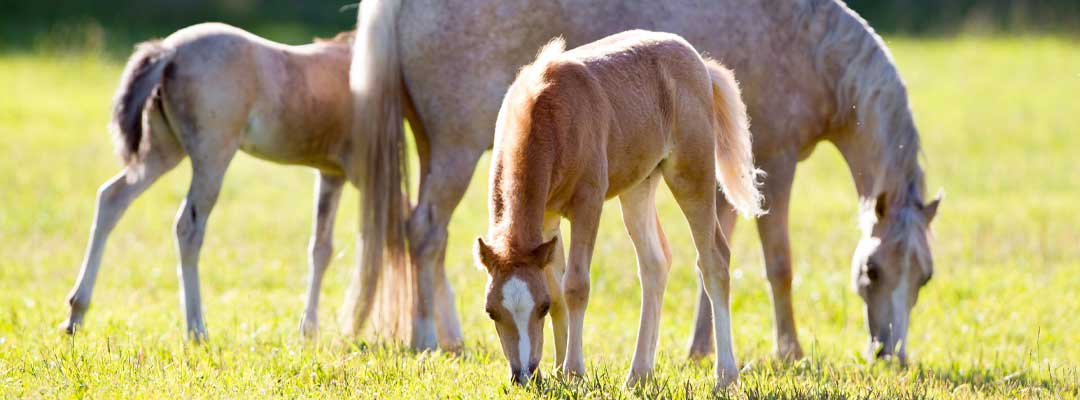Horse Dewormer Comprehensive Guidelines

Mature horses
Evaluate the efficacy of dewormers for your individual farm using the Fecal Egg Count Reduction Test at least every 3 years.
At a minimum, treat all horses on the farm once or twice yearly for large strongyles, tapeworms, bots, and nematodes responsible for causing summer sores. Treatment for bots and tapeworms should be timed to coincide with the end of the fly season for bots and the end of pasture season for tapeworms, typically late fall or early winter. (Using ivermectin/praziquantel or moxidectin/praziquantel combinations will achieve this goal.)
Other treatments during the year should be aimed at horses with high strongyle contamination potential, as identified by individual fecal egg counts. In any group of mature horses, strongyle egg counts are highly concentrated in certain horses, meaning that 80% of the eggs shed are often shed by only 20-30% of the horses. Therefore the key is identifying these horses and deworming prior to when they begin passing large numbers of eggs into the environment. After purge worming, using pyrantel tartrate (Strongid C 2X or similar product) on a daily basis in horses identified as high egg shedders will also prove beneficial. Alternatively, deworm these individuals during the pasture season at intervals that do not allow new parasites to become egg-producing adults.
While deworming kills the adult worms, in turn reducing the number of eggs shed, it is important to keep in mind that the real damage done by strongyles occur during larval migration. Consider treating with Panacur PowerPac or Safe-Guard Power-Dose when the encysted stage is at its peak, typically in the fall for northern climates and spring in more tropical and subtropical climates.
Pinworms historically have been a problem in young horses, however they are increasingly becoming more common in mature horses. Although there is no documentation of resistance to ivermectins, there is anecdotal evidence of resistance, so deworming with pyrantel pamoate, fenbendazole or oxibendazole may be necessary.
Foals, Weanlings, and Yearlings
During the first year of life, foals should be dewormed a minimum of four times, beginning at 2-3 months of age. Because ascarids are the primary target, a benzimidazole drug (Panacur/Safeguard or Anthelcide) is recommended. A second dose of benzimidazole is recommended at weaning or by 6 months of age, at which time a fecal egg count can be used to determine whether the primary worm burden is ascarids or strongyles. The next 2 wormings, at 9 and 12 months of age should target primarily strongyles, with tapeworm treatment included in one of these treatments.
Recently weaned foals should be turned onto the "cleanest" pastures available. Yearlings and two-year olds should be treated as "high" shedders, and be dewormed at least 3-4 times per year.


